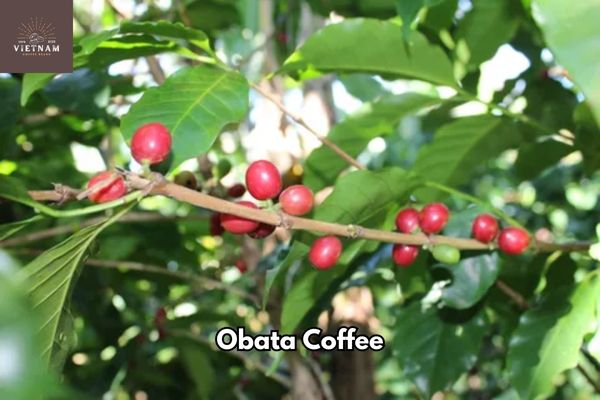As a coffee enthusiast, I have come across many unique and rare coffee varieties from around the world. However, one particular coffee bean has captured my attention – the Khawlani coffee bean. What makes this coffee so special is the fact that it is the only coffee grown in Saudi Arabia.
With its distinct flavor profile and rich cultural significance, Khawlani coffee has become a national treasure in the country.
The history and origin of this coffee can be traced back over 300 years, with techniques and knowledge passed down through generations. Despite the challenges faced by coffee farmers in Jazan, Saudi Arabia, such as a lack of water and resources, they continue to produce this exceptional coffee.
With efforts underway to have Khawlani coffee recognized as a cultural heritage by UNESCO, the future prospects for this unique variety look promising. This recognition would bring global attention and appreciation to this rare gem of Saudi Arabian coffee.
Join me as we explore the fascinating world of this coffee and its journey from the farms of Saudi Arabia to your coffee cup.
Key Takeaways
- Khawlani coffee beans are a rare and exclusive variety grown only in Saudi Arabia.
- The flavor profile of Khawlani coffee is characterized by low acidity, high bitterness, and undertones of fruity and nutty tastes.
- Khawlani coffee is considered a national treasure in Saudi Arabian culture and efforts are being made to have it recognized by UNESCO as a cultural heritage.
- Despite challenges, there is hope for the future of Khawlani coffee with potential improvements in production and increased global recognition.
What Is Khawlani Coffee?

Khawlani coffee, a cherished Yemeni specialty, offers a delightful exploration into the world of java coffee, as its distinct flavor profile of deep chocolate and spice notes showcases the exquisite craftsmanship and rich heritage that coffee enthusiasts can truly savor.
Khawlani coffee beans are a rare and exclusive variety of Arabica coffee grown only in Saudi Arabia. These beans have been cultivated using traditional techniques for over 300 years, deeply rooted in Saudi Arabian coffee tradition. The flavor profile of this coffee is truly unique, characterized by low acidity and high bitterness, with undertones of fruity and nutty tastes.
These beans have tiny grains and a distinct scent, well-known among coffee enthusiasts. The coffee produced from Khawlani beans also has an oily coating on the surface, adding to its richness and depth. Due to their limited availability, this coffee is considered a national treasure and an important part of Saudi Arabian culture.
The combination of exclusive cultivation techniques and a unique flavor profile sets Khawlani coffee apart from other coffee varieties. They are similar to Kivu coffee beans in that they are both known for their fruity and acidic flavor.
Khawlani Coffee is a sought-after coffee variety known for its bold flavor and rich aroma, and it’s worth exploring to discover what makes Tabi Coffee unique among its distinguished peers.
History and Origin

The history and origin of Khawlani coffee beans provide a fascinating journey into the world of coffee, while the meaning of Ethiopian Sidama coffee adds a unique dimension to the story.
I’ve always been fascinated by the rich history and origin of these unique coffee beans grown exclusively in Saudi Arabia.
The history of cultivation of this coffee beans dates back over 300 years and is deeply rooted in the country’s traditions. The cultivation techniques have been passed down through generations, with practical training being the main method of learning.
Jazan, in Saudi Arabia, is the main home of this coffee beans, and the region takes great pride in its coffee production, considering it a cultural identity.
In the past, coffee beans were a main source of livelihood during difficult times, contributing to the local economy. The impact of this coffee on the local economy cannot be underestimated, and now with the region attracting investment opportunities, there is hope for the future of this unique coffee variety.
Challenges for Farmers
Farmers in Jazan face various challenges. They deal with limited water resources and a lack of necessary tools and equipment. These challenges have been worsened by the effects of climate change.
Climate change has led to unpredictable weather patterns and increased water scarcity. The arid climate of the region makes it difficult for farmers to cultivate and maintain the Khawlani coffee plants.
Moreover, the long and laborious growing process of this coffee adds to the challenges. Seeds are planted, and fruits are harvested 2-3 years later. This requires continuous care and attention. These challenges have a significant impact on the local economy. Coffee production in Jazan is a key source of livelihood for many communities.
However, despite these difficulties, the farmers in Jazan remain resilient. They are determined to preserve their coffee heritage and overcome these obstacles.
One of the challenges faced by farmers of Khawlani coffee is the competition posed by other coffee varieties, such as Sidra coffee, which has gained popularity in recent years, requiring Khawlani farmers to innovate and adapt to ensure the continued success of their unique coffee in the market.
As Khawlani coffee farmers face numerous challenges in their cultivation process, it becomes essential for them to discover Agaro coffee, a variety that presents valuable insights and potential solutions to overcome these obstacles, ultimately enhancing the sustainability and productivity of their coffee farms.
Cultural Significance
The cultural significance of Khawlani coffee lies not only in its rich history and traditions but also in the unique flavors and aromas that are derived from the exquisite Limu coffee beans, making it a cherished beverage among coffee enthusiasts.
Despite its limited popularity, the cultural significance of coffee in Saudi Arabia cannot be overstated. Coffee, particularly Khawlani coffee, holds a special place in Saudi Arabian culture and is considered a national treasure.
Efforts are being made to have Khawlani coffee recognized by UNESCO as a cultural heritage, which would highlight its importance and contribute to its preservation. The inclusion in UNESCO’s heritage list would bring global attention and appreciation to this coffee, potentially boosting the coffee industry in Saudi Arabia.
The community in Jazan, where the coffee is grown, takes immense pride in their coffee production, considering it a part of their cultural identity. The tradition of cultivating Khawlani coffee has been passed down through generations, and the scent and flavor of the coffee are well-known and distinct.
To showcase the cultural significance of this coffee, here is a table highlighting its unique characteristics:
| Characteristics | Description |
|---|---|
| Flavor | Fruity, nutty, with low acidity |
| Aroma | Distinct and well-known |
| Availability | Exclusively grown in Saudi Arabia |
The recognition of this coffee by UNESCO would not only preserve its rich history and tradition but also ensure its continued appreciation and availability for generations to come.
Characteristics of Khawlani Coffee Beans

Recognized for its distinct flavor profile and aroma, this coffee is cherished for its low acidity, fruity and nutty undertones, and exclusive availability in Saudi Arabia.
When it comes to flavor, this coffee offers a unique and delightful experience. Its sweetness, combined with hints of floral, fruity, and chocolate notes, creates a truly indulgent cup of coffee.
The availability of this coffee is limited, as it is exclusively grown in Saudi Arabia. However, with increasing recognition and demand, there is a possibility that its availability may expand in the future. Currently, it can be purchased online, including on platforms like Amazon.
As its popularity grows, the demand for this coffee is expected to increase, making it a sought-after coffee variety among coffee enthusiasts worldwide.
When exploring the characteristics of Khawlani coffee beans, one cannot help but be captivated by their unique qualities, reminiscent of the allure found in Ethiopian Yirgacheffe coffee.
Future Prospects
Looking ahead, I am hopeful for the future prospects of this coffee, with potential improvements in production and increased global recognition. The coffee farmers in Jazan, Saudi Arabia, are passionate about their craft and eager to showcase their rich coffee history.
One factor that could contribute to the growth of this coffee is the availability of investment opportunities in the region. With financial support, farmers can access better resources and technologies to enhance their coffee production.
Additionally, if the government shows more interest in developing the coffee industry, it can provide crucial support in terms of infrastructure and policies. These factors combined could lead to increased productivity and quality of Khawlani coffee.
Moreover, as the global coffee market continues to evolve, there is a growing demand for unique and rare coffee varieties, which presents an opportunity for this coffee to gain recognition and popularity. Overall, the future of Khawlani coffee looks promising, and I am excited to see its growth and success.
| Investment Opportunities | Government Support |
|---|---|
| Access to better resources and technologies | Infrastructure support |
| Financial backing for farmers | Favorable policies |
| Potential for increased productivity | Industry development |
| Opportunity for growth and success | Enhancing coffee production |
Frequently Asked Questions
Conclusion
In conclusion, as a coffee enthusiast, I’m truly captivated by the unique and remarkable Khawlani coffee beans. Their rich history and origin, coupled with the challenges faced by the dedicated farmers in Jazan, Saudi Arabia, make this coffee variety all the more special.
Its low acidity, high bitterness, and delightful fruity and nutty undertones create a flavor profile that is truly one-of-a-kind.
With efforts to gain recognition as a cultural heritage, the future of Khawlani coffee looks bright, promising a broader appreciation for this national treasure.






